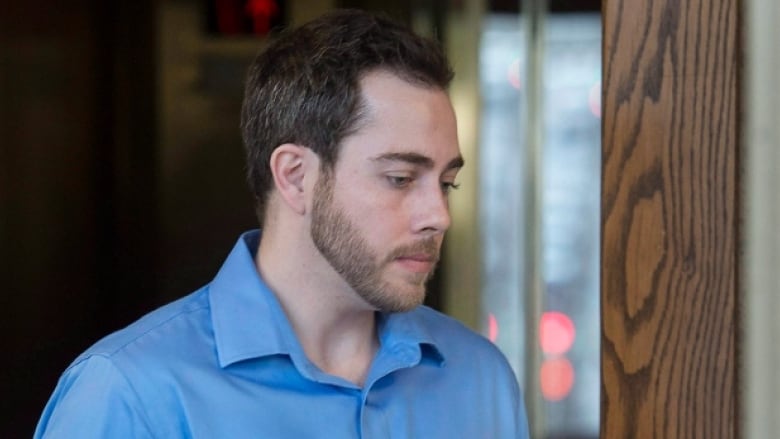Convicted murderer Christopher Garnier appeals his prison sentence
Garnier is currently serving a life sentence and is not eligible to apply for parole until 2030

A Halifax man who strangled an off-duty police officer and used a compost bin to dispose of her body is appealing his sentence.
Christopher Garnier, 30, was convicted in December of second-degree murder and interfering with a dead body in the death of 36-year-old Catherine Campbell.
The conviction carries an automatic life sentence, but a Nova Scotia Supreme Court justice ruled last month that Garnier would be able to apply for parole after serving 13 years less 699 days for time served. That means he won't be able to apply to the parole board until 2030, and the board may approve or refuse his application.
A notice of appeal filed last Thursday says Garnier is appealing his sentenceas it was "manifestly excessive."
The documents say Justice Joshua Arnold "over-emphasized" the aggravating factor of interfering with human remains in determining Garnier's period of parole ineligibility.
The document, signed by Garnier, says: "I desire to present my case and argument in person."
Garnier had earlier appealed his conviction, in part because he says police interview tactics elicited a false confession.
Veterans Affairs controversy
Garnier was recently at the centre of controversy over his use of Veterans Affairs benefits.
An expert at the trial testifiedGarnierdevelopedPTSDas a direct result of killingCampbell and dumping her body.Veterans Affairs has been funding treatment forGarnierfrom a private psychologist while he is behind bars, despite the fact he never served in the military.
The court heard during proceedings that becauseGarnier'sfatheralso hasPTSD, getting treatment for his son helps them both, and Veterans Affairs covers the psychological help.
Minister's response
Last week, Veterans Affairs Minister Seamus O'Regansaid he wasgoing to look into why Garnier was receivingtreatment paid for by his department.
"I think I reacted like most Canadians reacted how could this happen? How could this happen? And we are going to look into how and why this decision was made," Seamus O'Regan told CBC News on Wednesday evening.
"What I can say is that we have a policy at Veterans Affairs Canada, that when we are helping a veteran, for instance, with PTSD, we are there not only for them but for their family," O'Regan said.
"And if by counselling, helping their family, helps the veteran then we will do that."
O'Regan said each case the department handles is dealt with on an individual basis. He said individual situations come down to the psychiatrist, the mental health professional, the veteran and their family.
With files from The Canadian Press












_(720p).jpg)


 OFFICIAL HD MUSIC VIDEO.jpg)
.jpg)



























































































